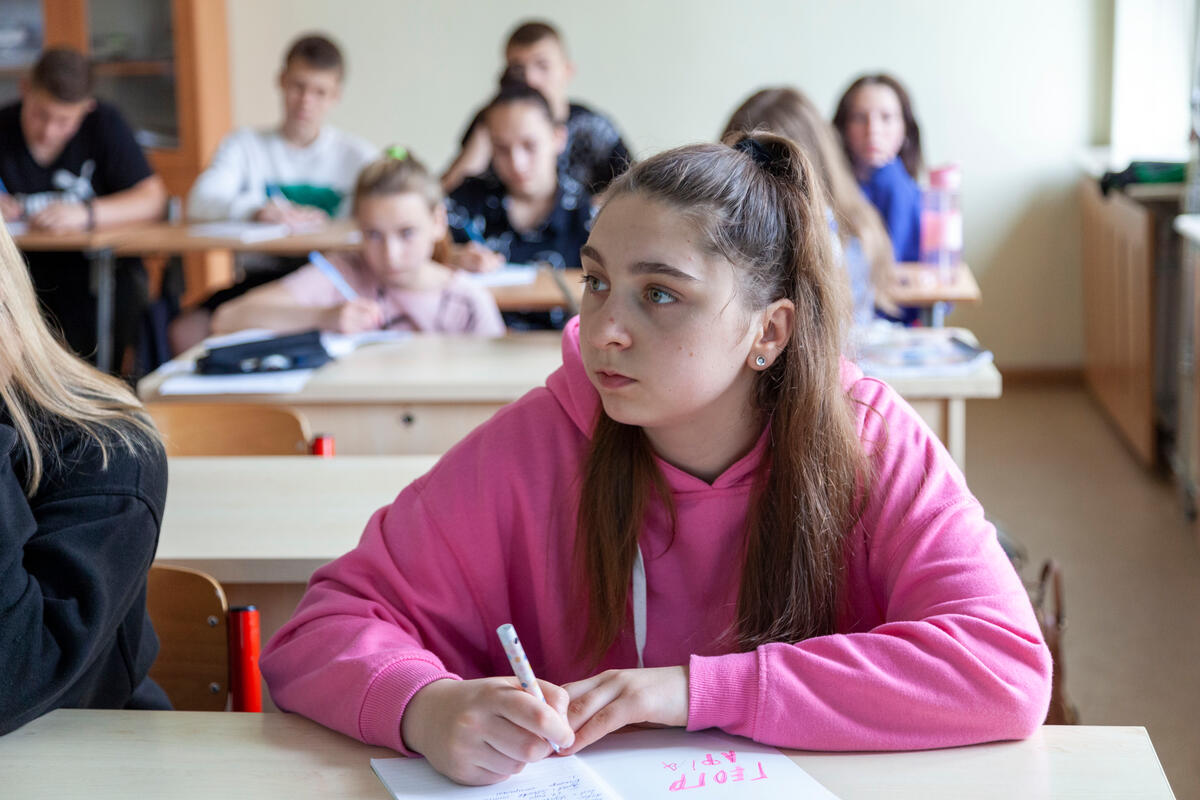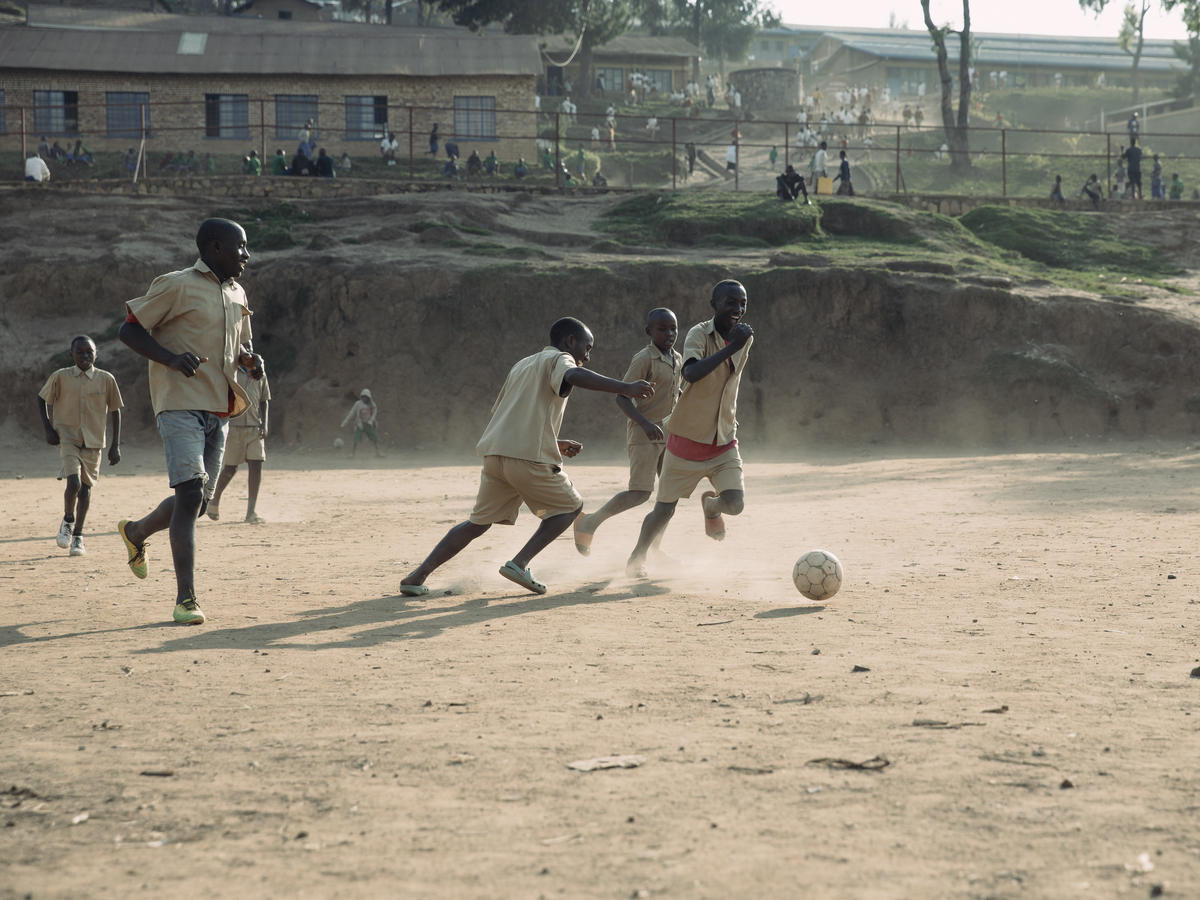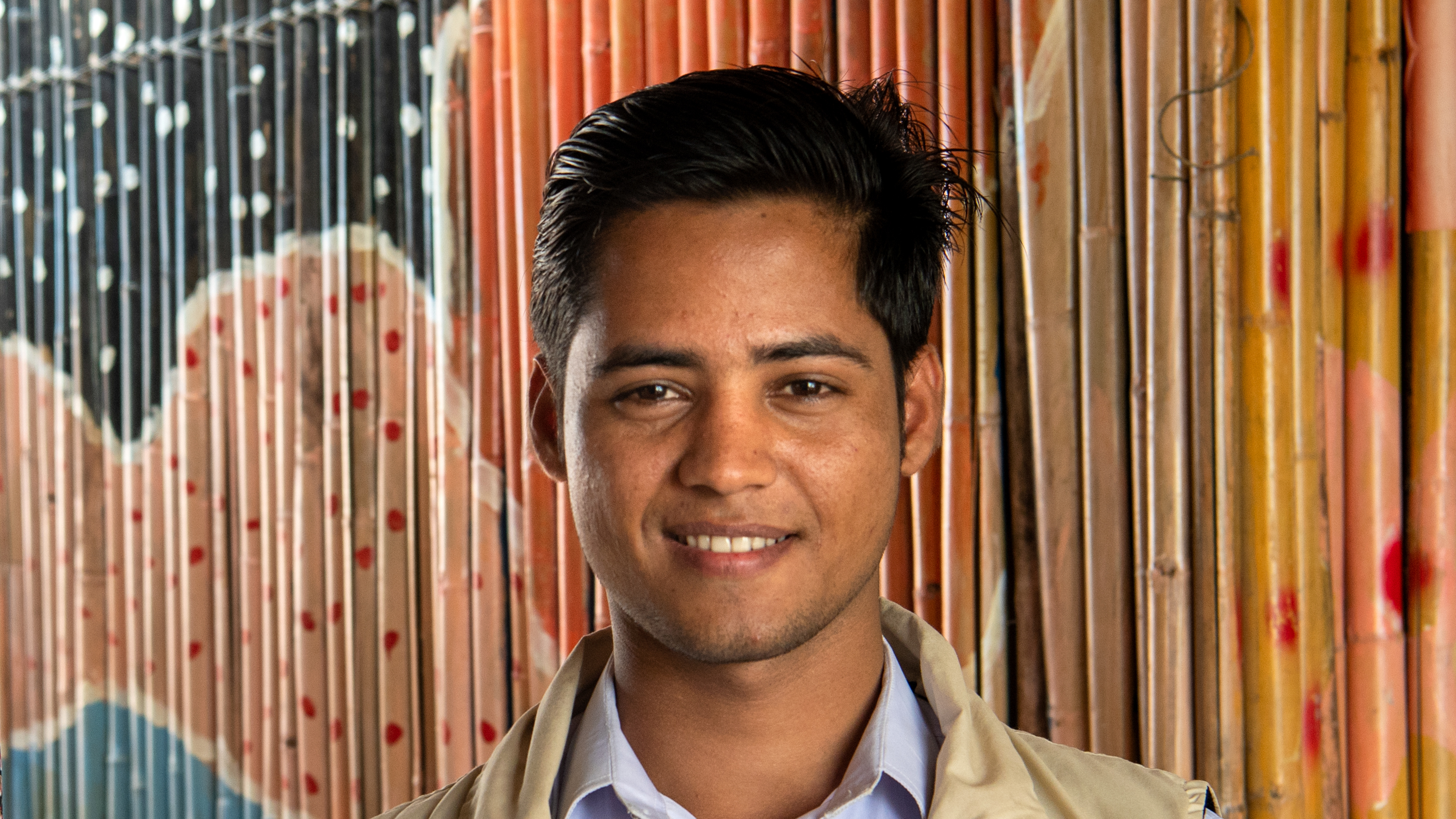1 family torn apart: Parents reunite with children in Argentina
1 family torn apart: Parents reunite with children in Argentina

BUENOS AIRES, Argentina, November 2 (UNHCR) - On a cold night earlier this year in Buenos Aires, joy came back into Sané's life when he and his wife were reunited with their two eldest children after more than a decade.
Today, the 43-year-old refugee from Senegal is getting to know Demba, aged 15, and Adama, 12, who have spent most of their childhood growing up without a father and mother. Torn apart by persecution, they are finally getting the chance to be a family and build a future in a new country.
Demba and Adama are also discovering what it is like to have three more siblings, after meeting Isa, aged nine, Alí, six, and three-year-old Marlene, for the first time on their arrival in late August at the Argentine capital's Ezeiza International Airport. And they barely remembered their parents.
The two youngsters were born in Senegal during the twilight years of the 20th Century. But their home region of Casamance has been plagued by a low-level separatist conflict since 1990. Sané, fearing for his safety, moved from town to town before fleeing to Argentina in 1998.
Sané left his wife Marie and the two children, Demba and Adama, behind. "It was impossible to bring all of them. It was very painful, but I had no choice," he recalled. In 2001, he was able to pay the air fare for Marie to join him, but he could not afford to bring the children and they were left with their grandmother.
In Argentina, the couple were granted refugee status and started a new life. It was not easy at the beginning. They had to learn a new language and the culture of a new country. Marie became pregnant with Isa soon after their arrival and as the family grew it became a struggle to make ends meet.
Sané longed to bring Demba and Adama over, but he thought it wiser to wait until their economic situation was more stable and they could offer their children a decent life in a big enough house. Then he found a job with a paper company and soon felt comfortable enough to approach UNHCR about a family reunion.
Working with the authorities, including the Foreign Ministry, the National Migrations Directorate and the National Commission for Refugees as well as the International Committee of the Red Cross and the International Organization for Migration, UNHCR helped arrange for the two children to join their parents in Argentina.
A trans-Atlantic flight from Dakar via Madrid brought them on that chilly August night to the busy airport in Buenos Aires, where a besuited Sané and his wife waited anxiously in the sterile area of the terminal while Isa, Alí and Marlene played excitedly in the arrivals area, oblivious to the significance of the moment.
Finally they spotted the two special intercontinental passengers, who were carrying their few belongings in hand luggage and looked surprisingly sprightly after the journey.
Tears and hugs followed as emotions bottled up for a decade were released. "Our dream came true. I can't explain the happiness we feel at this moment," the proud, elated father said.
The reunion party began at the airport and carried on when they got home in Quilmes, some 20 kilometres from Buenos Aires. A beaming Sané promised his precious children a welcome home feast of yassa au poisson (a typical rice and fish dish), adding that it was "more nutritious and cheaper than pizza." At last they could all move on with their lives.
By Ana Lía Conde and Virginia Pico in Buenos Aires, Argentina








